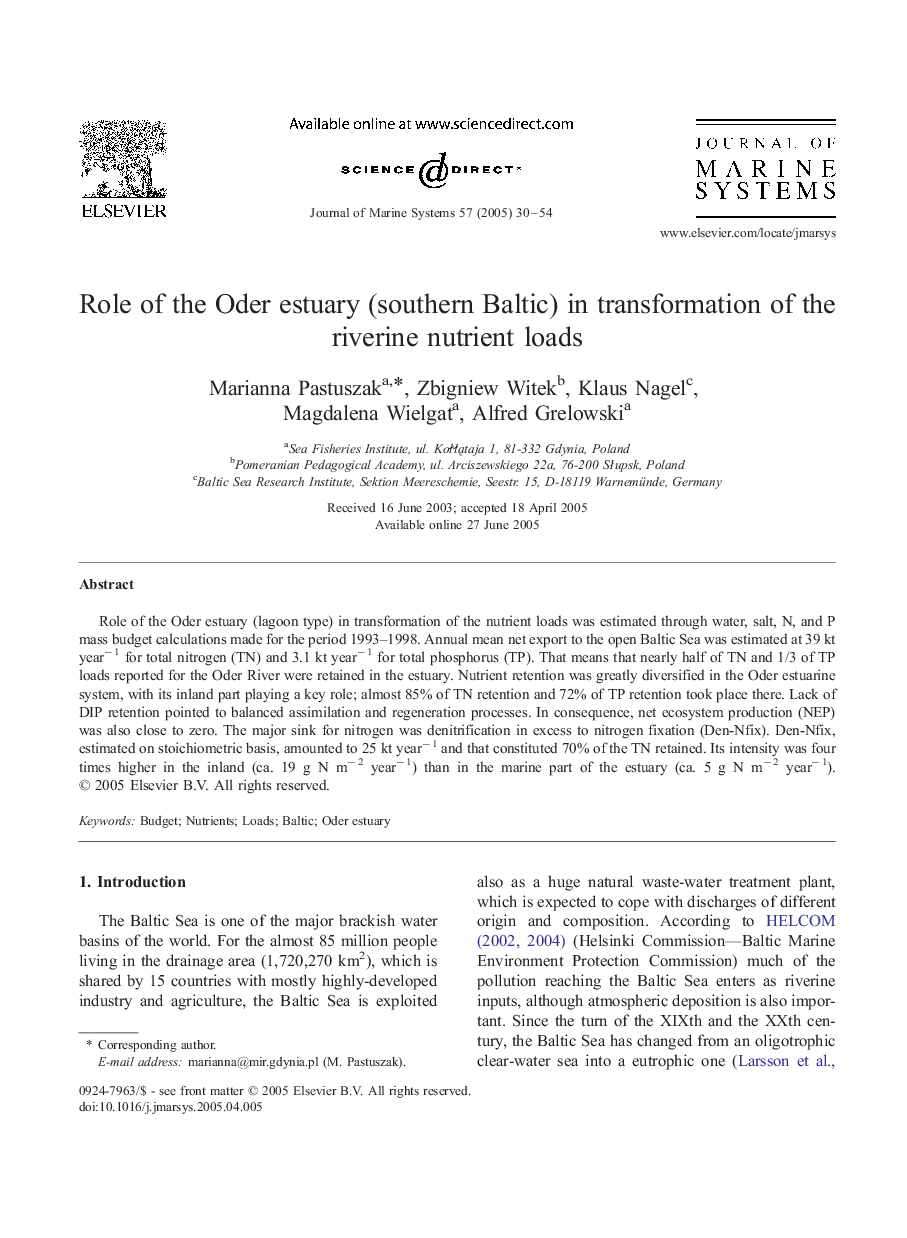| Article ID | Journal | Published Year | Pages | File Type |
|---|---|---|---|---|
| 9483459 | Journal of Marine Systems | 2005 | 25 Pages |
Abstract
Role of the Oder estuary (lagoon type) in transformation of the nutrient loads was estimated through water, salt, N, and P mass budget calculations made for the period 1993-1998. Annual mean net export to the open Baltic Sea was estimated at 39 kt yearâ 1 for total nitrogen (TN) and 3.1 kt yearâ 1 for total phosphorus (TP). That means that nearly half of TN and 1/3 of TP loads reported for the Oder River were retained in the estuary. Nutrient retention was greatly diversified in the Oder estuarine system, with its inland part playing a key role; almost 85% of TN retention and 72% of TP retention took place there. Lack of DIP retention pointed to balanced assimilation and regeneration processes. In consequence, net ecosystem production (NEP) was also close to zero. The major sink for nitrogen was denitrification in excess to nitrogen fixation (Den-Nfix). Den-Nfix, estimated on stoichiometric basis, amounted to 25 kt yearâ 1 and that constituted 70% of the TN retained. Its intensity was four times higher in the inland (ca. 19 g N mâ 2 yearâ 1) than in the marine part of the estuary (ca. 5 g N mâ 2 yearâ 1).
Related Topics
Physical Sciences and Engineering
Earth and Planetary Sciences
Oceanography
Authors
Marianna Pastuszak, Zbigniew Witek, Klaus Nagel, Magdalena Wielgat, Alfred Grelowski,
